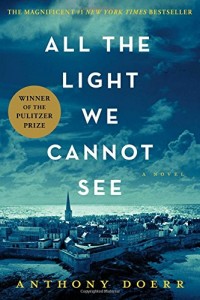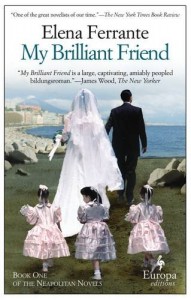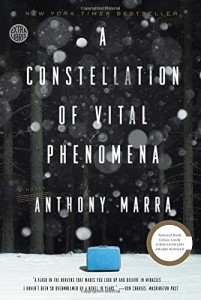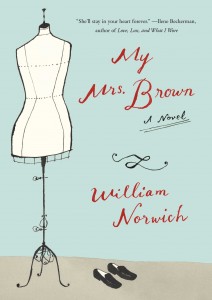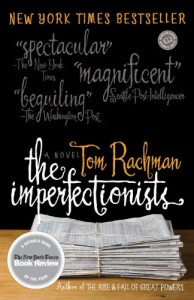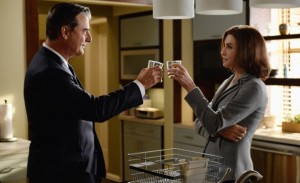Michael Dirda ~ Part Deux
Michael Dirda
I received an email from one of my legion of loyal few Book Barmy readers regarding this post on the book of essays entitled Browsings by Michael Dirda. This reader wondered why, as a declared Anglophile, I had failed to mention his essay called Anglophilia or perhaps I had skipped it?
Well, this sent me scurrying back to the book because I frankly didn’t remember said essay. After reading it I realized that I must have skipped this one — you see, I did not adhere to Mr. Dirda’s introductory rule of reading his essays in order.
I hung my head in shame, and as penance, last night I again browsed through Browsings (sorry for that phrase, but you knew it was coming, didn’t you?). I ended up re-reading several of my favorites and finding a passage or two I had fogotten.
The neglected essay Anglophilia was written during Queen Elizabeth’s 60-year jubilee and should be read in its entirety, as it is chocked full of British greatness. Mr. Dirda admits his secret fantasy of being picked for a knighthood or an OBE. He feels he may have earned such an honor given his lifetime of dreaming of Harrods Christmas hampers, box seats at the Grand National and pub lunches of shepherds pie.
In real life, his Anglophilia is limited to a Harris Tweed sport coat, a few Turnbull & Asser shirts (picked up at a local thrift shop) and watching Miss Marple mysteries on television.
(I watch them) less to guess the identity of the murderer than to look at the wonderful clothes and the idyllic Costwoldian village of St. Mary Mead. My wife tells me I should check out Downton Abbey, but I gather that series might be almost too intense for my temperate nature.
Of course, most of Mr. Dirda’s Anglophilia is bookish, and he imagines his very own country house library – (my imagined room is quite the same):
…lined on three walls with mahogany bookshelves, their serried splendor interrupted only by enough space to display, above the fireplace, a pair of crossed swords or sculling oars and perhaps a portrait of some great English worthy. The fourth wall would, of course, open on to my gardens, designed and kept up by Christopher Lloyd, with the help of Robin Lane Fox…There would definitely be a worn leather Chesterfield sofa, its back covered with a quilt (perhaps a tartan? decisions, decisions) and its corners cushioned with a half-dozen pillows embroidered with scenes from Greek mythology. Here, I would recline and read my books.
I found a few other passages I must read out loud to you…okay you can read them yourselves.
He ruefully muses about his book buying expenditures:
It’s true that even $5 book purchases do add up. Yet, what after all is money? It’s just this abstraction, a number, a piece of green paper. But a book — a printed volume, not some pixel on a screen — is real. You can hold it in your hand. Feel its heft. Admire the cover. Realize that you now own a work of art that is 50 or 75 or even 100 years old. My Beloved Spouse constantly berates me for failing to stew sufficiently about money. For 30 years I diligently set aside every extra penny to cover the college educations of my three sons. I paid off my home mortgage long ago. I even have some kind of mutual fund. Nonetheless, it’s hard for me to feign even minimal interest in investing or studying the stock market. What a weary, stale, flat, and unprofitable – okay, make that profitable — way of life it is to think constantly about the bottom line. Keogh plans, Roths, Schedule C, differed income, capital gains, and rows and rows of little numbers…The heart sinks.
And finally, I’ll leave you with more about his plan to travel around the US visiting second-hand bookstores.
(In addition to stopping at bookstores) …I’d naturally take the time to genuflect at the final resting places of writers I admire. Come lunchtime I would obviously eat in diners and always order pie for dessert, sometimes à la mode. During the evenings sipping a local beer in some one-night cheap motel, I would examine the purchases of the day and fall asleep reading shabby, half-forgotten novels.
Thinking I would not need or want to re-read this book, it almost went into the library donation bag. See what I almost missed? I stand vindicated in my board hoarding collecting. I’m giving Browsings its permanent and rightful place on my bookshelves.
Browsings by Michael Dirda
 Browsings by Michael Dirda
Browsings by Michael Dirda
A Year of Reading, Collecting, and Living with Books
What prompts me gravitate to books about other books? They only add to my long lists and piles of books I want – nay, must read. It’s a sickness I tell you – a real sickness. You may remember this post, when, after doing the math, I soberly realized I’ll never read all the books I want to read. But like a moth on its death journey towards a hot light, here I go again. Send help…
I just finished reading Browsings, Michael Dirda’s collection of essays about – you guessed it — books and reading. Mr. Dirda, a weekly book columnist for the Washington Post, is no slouch, he received the Pulitzer Prize for distinguished literary criticism.
These essays come from his writings for The American Scholar. I’d never heard of this journal and after some sleuthing (OK, a bit of Google searching) it turns out to be the quarterly magazine of the Phi Beta Kappa Society. (No wonder I never heard of it. Way above my mental pay grade.) Lest you fear, these essays are down to earth, funny and nowhere near as pretentious as “The American Scholar”. Just read this from the back jacket cover:
He was once chosen by Washingtonian Magazine as one of the twenty-five smartest people in our nation’s capital – but, as Michael says, you have to consider the competition.
In the introduction, Mr. Dirda recommends reading his essays no more than a few at a time, and also reading them in order. I obeyed the first advice, but not the second. I admit I did leap around a bit, but in the end, I read them all. Browsings was my constant companion for that soothing half hour just before falling asleep.
The essays in Browsings are eclectic and seemingly random…from his sad musings of his mother’s nursing home to the loss of cursive penmanship – but the connective tissue is books, reading books, collecting books, finding books, talking about books and writing about books.
In fact, many of the essays are interspersed with reading lists (thus my ever expanding TBR titles). We share a fondness for Christmas books — he lists and summarizes his favorites – (taking notes, taking notes…)
Another essay starts with a rant against his local power company when he was without power for three days during a DC area heat wave.* By the third day, he blissfully escapes to a cooler, more northerly-located bookstore. Mr. Dirda, naturally summarizes the numerous books he acquired. (Come right this way folks, see the idiot making yet more lists of books…)
He has a love of older books – eschews bestsellers and feasts his eyes (and his wallet) on the vibrant dust-jackets of the 1940’s and 50’s. There’s a divine essay dedicated to the golden age of detective novels – trust me readers, you, too, will be jotting notes. Mr. Dirda, in another excerpt, reflects upon the bookshelves, favorite notebooks and writing implements of various great authors — what reader can’t resist picturing Colette writing with a beloved Parker fountain pen?
After reading an article about millionaire author and Law & Order producer David Wolf, who owns a home in Montecito, California — “where God would live if he had the money.” –he ponders excessive wealth and Tolstoy’s lament – “how much (land) does a man need?” Mr. Dirda reflects on his own excess — books:
It’s certainly not as though I need any more books. Just yesterday I was up in the attic creating neat stacks of those I would like to read Right Now.
Of course the author speaks fluent French and taught English in Marseille. He tells of a hunch-backed dwarf who cut hair in a garage, where one had to climb down into a pit so he could circle around and cut the hair. I don’t do the tale justice, you must read it for yourself.
When I read the following passage, I wondered if Mr. Dirda was a ghost here in my home office, silently judging me hunched over my computer:
…I’ve discovered, you have to get out, you do need to see other human beings. You can’t just read and write all day, much as I’d like to. After a few hours in a chair, my body grows achy, my brain feel even mushier than usual, my tired eyes start to hurt. To refresh myself I usually go for a walk, or if I’m feeling virtuous and resolute, I’ll hike over to the gym. (Thanks much, how to be superior Mr. Dirda.)
I just love this guy, he’s a charming, quirky book nerd. How could I not fall for a guy who dreams of traveling around North America in a van visiting secondhand bookstores. (Question, would a van be large enough for both of us and our book purchases? — Time to re-think the vehicle Mr. Dirda.)
After finishing the final essay, and in addition to the wildly optimistic new list of books I must want to read, I jotted down some quotes from Browsings – you bibliophiles out there will relate:
I also think of some books as my friends and I like to have them around. They brighten my life.
The world of books is bigger than the current best-seller list.
Books don’t furnish a room. A personal library is a reflection of who you are and who you want to be, of what you value and what you desire, of how much you know and how much more you’d like to know.
What fun it was to spend time each evening with a witty, engaging and off-the-charts-smart booklover whose reading covers a surprisingly wide breadth of interest and expertise.
Look for his other books which include Book by Book (own it), Classics for Pleasure (want it), and Readings (just got it).
(*N.B. He’s talking about Silver Spring, Maryland, where I grew up and summers were indeed brutal. I spent those hot, humid days with Nancy Drew in front of a cooling fan until I was forced to go out and play. That says a great deal don’t you think?)
Publicity ~~ from across the pond
I’m so excited…
One of my favorite book blogs is Savidge Reads in England. Simon Savidge is a major player in the world of book reviewing and book judging over there. I’ve been following Simon’s blog for several years now. When he raves about a book – I’m writing it down, when he lost his beloved Gran (another book lover) I sobbed, when he profiles his favorite bookshops I sigh in envy — in short, I’m a big fan.
His blog has a huge following and (gulp) today he’s profiling my bookshelves and this here little ol’ Book Barmy in his segment called Other People’s Bookshelves.
See my moment of fame HERE
Be sure to browse the rest of his blog — it’s wonderful!
The Dipper Defense
You may have noticed my absence here on Book Barmy. I apologize for neglecting you, but I’m going to plead the “dipper” defense.
This is a Dipper and he hops along a stream dipping in and out of the water, taking little samples of surface bugs and flies. Never lingering in one place, he has to try every nook and cranny of the stream bed.  I’ve been doing the same thing with books. Dipping in and out of a pile of books that landed in my reading nook. I’m changing books like a teenage girl changes outfits.
I’ve been doing the same thing with books. Dipping in and out of a pile of books that landed in my reading nook. I’m changing books like a teenage girl changes outfits.
I open one book, read a chapter, then pick up another to taste that one — then skim the back cover of another and before you know it, I’m into that one. Must Focus …
Luckily my dippyness (yup, I just made that up) has recently subsided and I’m almost finished a couple of these, so proper book reviews will resume shortly.
In the meantime, is anyone else really sad to see this series end?
The Good Wife-superb writing and a gasp-inducing storyline involving lawyers, politics and sex – some of the best television ever.
I’m especially going to miss this guy — sighhhhhh.
A Woman of Independent Means by Elizabeth Forsythe Hailey
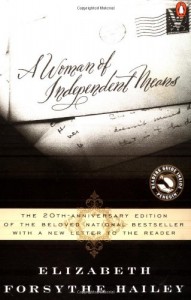 I first read this book back in 1980, just a couple of years after it was published. Embroiled in graduate school demands and anxieties, I needed a reading escape, but nothing frothy or light. My brain was working overtime, on all cylinders, and my recreational reading needed to do the same.
I first read this book back in 1980, just a couple of years after it was published. Embroiled in graduate school demands and anxieties, I needed a reading escape, but nothing frothy or light. My brain was working overtime, on all cylinders, and my recreational reading needed to do the same.
As it often is with books, I found A Woman of Independent Means as a beat-up paperback left behind on the student lounge bookshelf. It turned out to be the exact right book at the exact right time. Reading the life story of Bess, a woman who never, ever suffered from feelings of inadequacy or low self esteem, was the perfect foil to my own quivering mass of insecurities trying to survive in a often harsh and competitive environment.
In the years since, I have re-read this classic several more times and once again this past month when a new edition (above) entered my library to happily replace my original beat-up paperback, with a truly ugly cover.
This epistolary novel is comprised of one woman’s correspondence to her family, friends, and others spanning from the turn of the last Century to 1968. Bess is based on the author’s own grandmothers letters and we see Bess live through two world wars, the great depression, the influenza epidemic and the assassination of President Kennedy. She observs horse and buggy days through automobiles and from crossing the ocean by ship to air travel. We see history unfold through her letters.
The author has created a remarkable and complex woman – both ahead of her time and an ambitious, independent thinker. Bess is outspoken, brash, rebels against convention, and yet, is completely vulnerable. Through her letters, the reader watches the narcissistic Bess try to manipulate and control her loved ones’ lives — truly unaware she is overstepping and usually hurt and bewildered when they rebel.
Bess suffers financial ruin after the death of her first husband, so becomes financially savvy and sets herself up to be independently wealthy through her second marriage. As a “women of independent means” she is able to get what she wants – whenever she wants — often with grimace-worthy results:
I am very sorry to hear of my cousin’s illness. I have not received a letter from her since last summer and I was beginning to wonder what reason I had given her for such a long silence. When she regains consciousness, please tell her I wrote to express my concern.
If she does not regain consciousness, may I remind you that I am the legal owner of the four-poster bed she now occupies and in the event of her death, it is to be shipped C.O.D. to me here in Texas. Cordially, Bess Alcott Steed.
Bess’s Machiavellian actions are in stark contrast to her overwhelming need be loved and admired. She is constantly confounded by others’ actions and strives to put things right – as she sees it.
Throughout a series of of personal tragedies, Bess remains relentlessly optimistic. From the loss of her son, to the burning down of her beloved home, Bess never feels sorry for herself and is somehow stronger after each (often unbelievable) set-back.
Bess and her married daughter have a predictably difficult relationship which Bess tries to solve by inviting herself to her daughter’s social events and ingratiating herself with her daughter’s best friends. A heart wrenching letter to her daughter in 1943 is some of the best insight on aging mother/grown daughter relationships I’ve ever read.
There are many moments when Bess has the clear-sightedness of age and experience. I stopped to underline several passages such as this one:
Remember the night you and I talked until dawn with Betsy trying her eight-year-old best to stay awake with us? The others had long since fallen asleep when she suddenly saw the sun rising and burst into tears, terrified to realize morning would come whether she had slept that night or not. But better for her to learn early that nature does not ask our consent to continue its inexorable circuit.
Ms. Hailey has brilliantly crafted a complex character who will stick with you long after you close this novel’s pages. Bess is far from perfect -and I was often exasperated (and sometimes horrified) by her — yet I still shed a few tears with her. Like all fascinating characters, I was always interested in Bess, never bored by her and actually loved every moment I was allowed to spend in her presence.
Advance Readers Copies
I revel in receiving Advanced Readers Copies of books from publishers. These ARCs (sometimes called proofs or galleys) are given to book reviewers and book sellers in exchange for honest reviews and hand-selling the book at their bookstores. They also ask that you state this fact with your review of the book.
This gift of pre-publication reading means I have often read many bestsellers by the time they are published and being talked about. These ARC’s come to me in both digital and printed form, and have not gone through the final edit – so you find yourself slowing down at a few typos here and there — not to mention the odd formatting especially with digital editions. They also sometimes lack cover art — so it is very surprising to see how the real book looks when it hits the shelves. (I find myself imagining the perfect cover as I read).
Quite a few of the ARCs I’ve read are pretty bad and I don’t get beyond the first few chapters, others are just not my type, and some are so horribly formatted (I’m talking digital here) that you can’t make heads or tails of what you’re reading. But, happily, most are admirable — if not amazing.
I finished one of those simply great ARCs the other evening, and was ready to tell you all about it here. The back cover says publication in March 2016, but something gnawed at me. I’m a very minor player in the book review world, but I do keep up with book review publications and I hadn’t seen it on any bookstore “new arrivals” shelves. (Trust me, I am a pretty major bookstore junkie browser.)
So I did some sleuthing and found out that this wonderful book’s publication has been delayed until October 2016.
Publishers ask that a reviewer NOT review an ARC until 30 days of its publication and I like to wait until it actually is published — just to be sure.
So I will review another book here on Book Barmy shortly — one I just re-read and loved just as much as the first time I read it – yikes 30 odd years ago.





